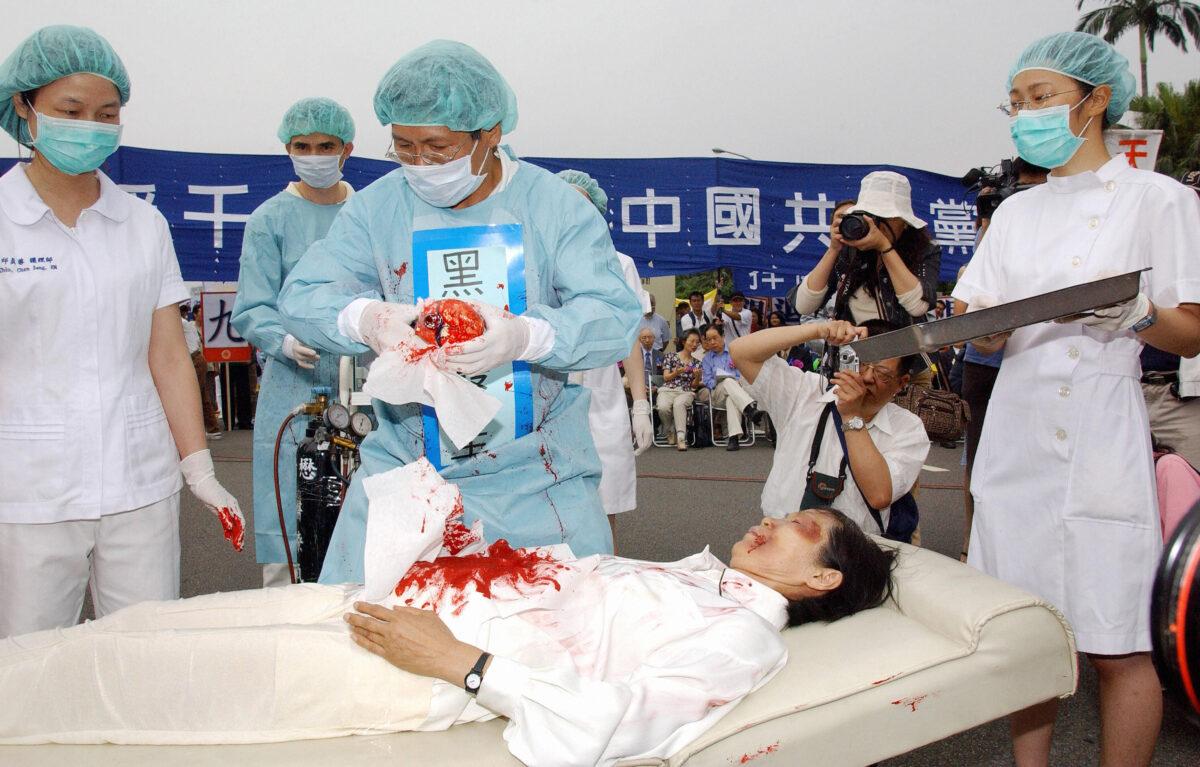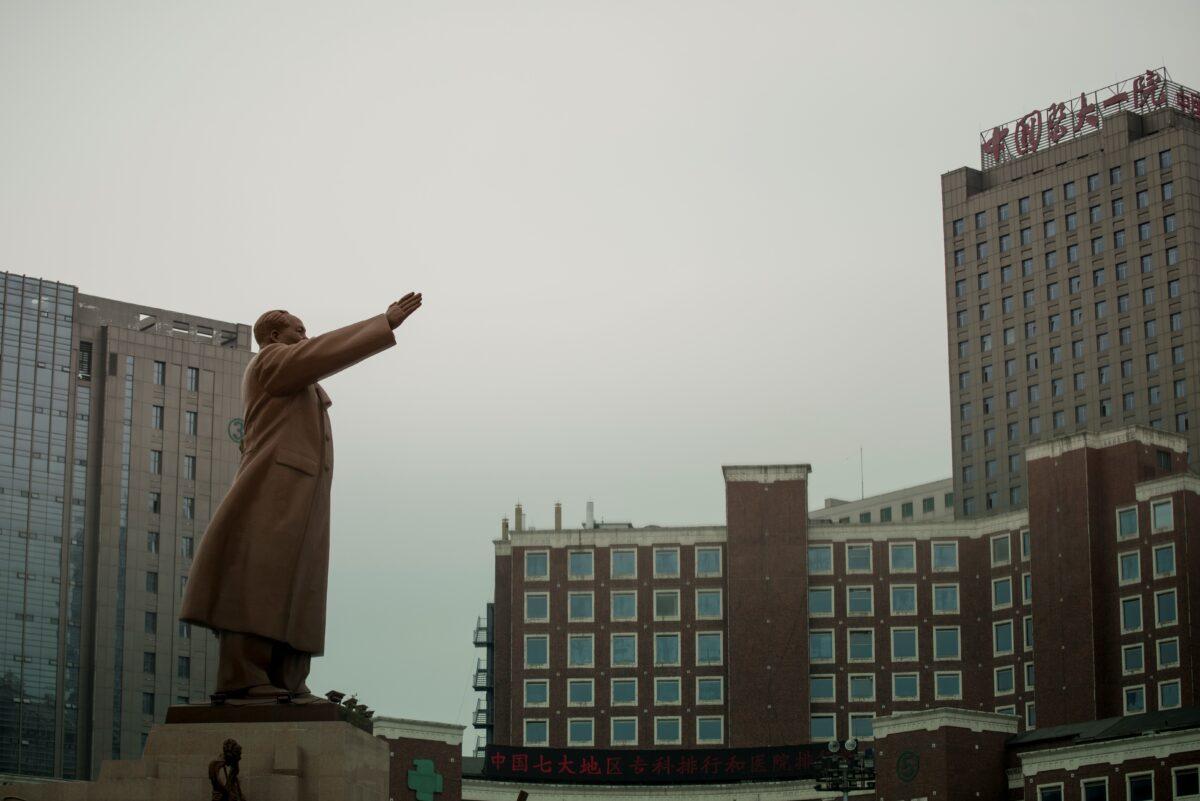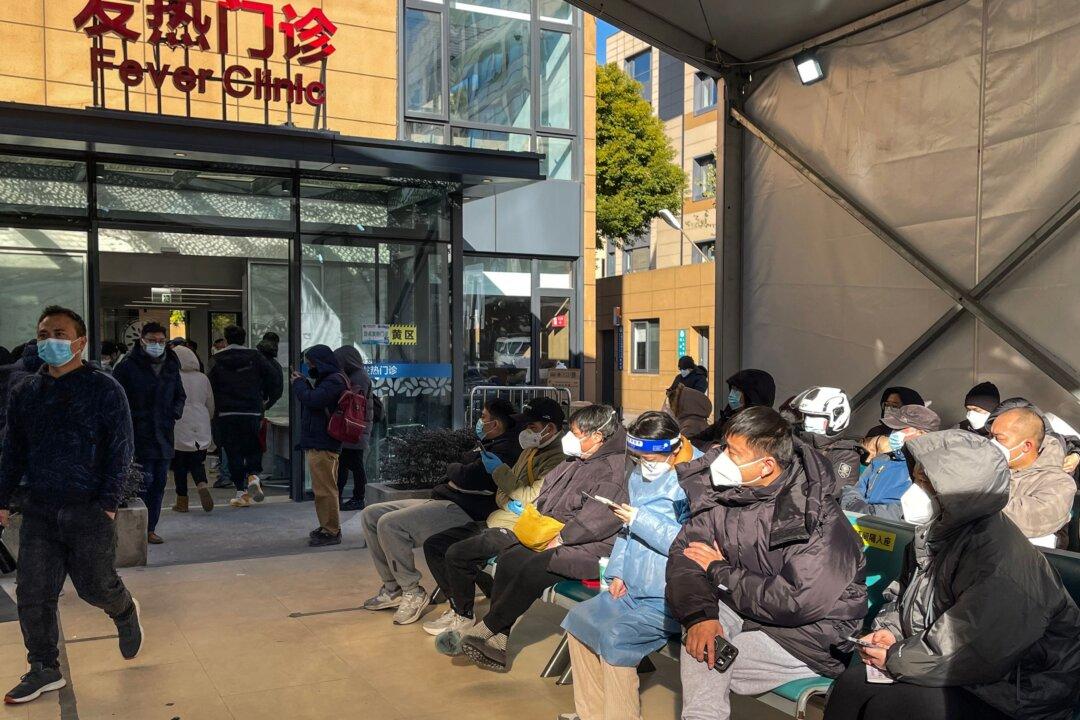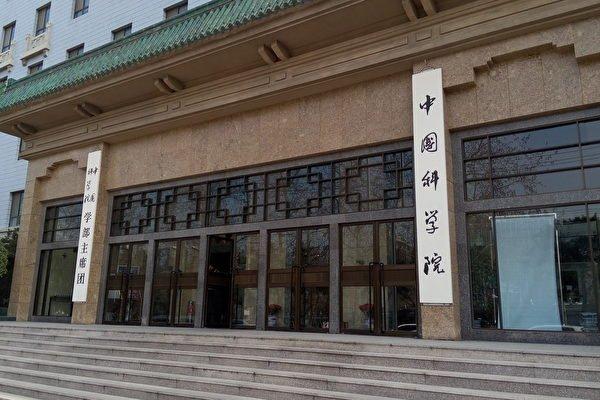Liu Yongfeng, vice president of the First Hospital of China Medical University (CMU), died on Monday. Liu and CMU have been accused by investigators in the United States of allegedly being involved in organ harvesting crimes.
As a senior organ transplant specialist, Liu Yongfeng presided over the Guidelines for Organ Donation for Cardiac Death in China, which the CCP claims has “opened a new era of organ donation” in the country, “bringing China’s organ transplantation business to the second golden stage.”
Falun Gong is a peaceful meditation practice with millions of followers around the world, but in China, Falun Gong adherents have been one of the biggest victim groups of forced organ harvesting by the CCP since its former leader Jiang Zemin in 1999 initiated a persecution campaign against Falun Gong.

According to WOIPFG’s report, Liu Yongfeng has performed at least 700 kidney transplants and 190 liver transplants. From May 1995 to June 2005, 165 combined liver and kidney donor transplants used combined abdominal organ rapid resection, all brain dead, aged 20–54, 119 males and three females. Preoperative tests were negative for HIV and hepatitis virus, and liver and kidney function were all normal; From September 1999 to September 2004, 19 cases of combined pancreatic renal resection were male, with an average age of 30.
Liu Yongfeng was born on Aug. 13, 1952, and joined state-run CMU—which is located in Shenyang, northeastern China’s Liaoning Province—in 1973 to study. He later served as vice president of CMU-affiliated First Hospital, leading the hospital’s General Surgery Department, the Hepatobiliary Surgery Department, and the Organ Transplantation Department. Liu Yongfeng was also in charge of the CMU Institute of Organ Transplantation and General Surgery.
In addition to his pivotal role at CMU, Liu Yongfeng holds abundant official and medical titles, such as a member of the Clinical Application Committee of Human Organ Transplantation Technology of China’s Ministry of Health, head of the Expert Group for China Human Organ Donation Preparation, director committee of Chinese Society of Organ Transplantation, and the chairman of the Organ Transplantation Branch of the Liaoning Province’s Medical Association.
He is also a member of the editorial board of several journals, including the Chinese Journal of Organ Transplantation and the Chinese Journal of Surgery, and editor-in-chief of the Chinese Journal of Practical Surgery. The State Council granted Liu Yongfeng a special lifetime allowance.
China Medical University Allegedly Harvests Human Organs Alive

CMU is the earliest CCP-based medical school, founded in November 1931 in Ruijin, Jiangxi Province—at that time, Mao Zedong set up the Chinese Soviet Republic with Ruijin as its capital. It was formerly known as a military medical and health school catering to the CCP and later renamed China Medical University (CMU) in September 1940 in Yan’an, Shaanxi Province.
On May 23, 2007, CMU’s First Hospital was designated by the Ministry of Health as a hospital for liver and kidney transplantation. In 2002, the Institute of Organ Transplantation and a new organ transplantation ICU were established. As of Oct. 18, 2012, the hospital had performed more than 800 kidney transplants, 200 liver transplants, six combined liver-kidney transplants, 26 combined liver-kidney transplants, three combined islet-kidney transplants, and one post-transplant islet transplant. Hong Jing, an ophthalmologist at the hospital, has performed at least 800 penetrating and lamellar corneal transplants, according to WOIPFG’s investigation.
According to a telephone conversation with a convert WOIPFG investigator on May 25, 2012, Chen Rongshan, head of the Urology Surgical Section at PLA 205 Hospital in Jingzhou, Liaoning Province, admitted to harvesting organs from Falun Gong adherents and that CMU had been involved in Wang Lijun’s post-drug-injection transplantation project.
Chen Rongshan “has performed as many as 568 kidney transplants in recent years, with a success rate of 100 percent,” boasted an article in Liaoxi Business News on May 23, 2006.
Investigator: He [Wang Lijun] had a post-drug-injection transplantation project and collaborated with the PLA 205 Hospital on this. Could you tell us more about it?
Chen Rongshan: Ah…
Investigator: We would like to confirm if you have collaborated with him on this.
Chen Rongshan: Not only us, China Medical University was also involved in this.
Investigator: Wang told us that some of the organs were from detained Falun Gong practitioners. Could you confirm this?
Chen Rongshan: They were handled through the court.
Investigator: You mean, the court officials were involved?
Several Professors of CMU Died of Illness
According to incomplete statistics from multiple Chinese news media, in 2023, in addition to Liu Yongfeng, at least five other notable medical experts of CMU died of “illness.”Those surgeons all enjoyed special allowances from the State Council, and each of them was highly praised as an “excellent CCP member” or “loyal” to the Party and the Party’s causes.




